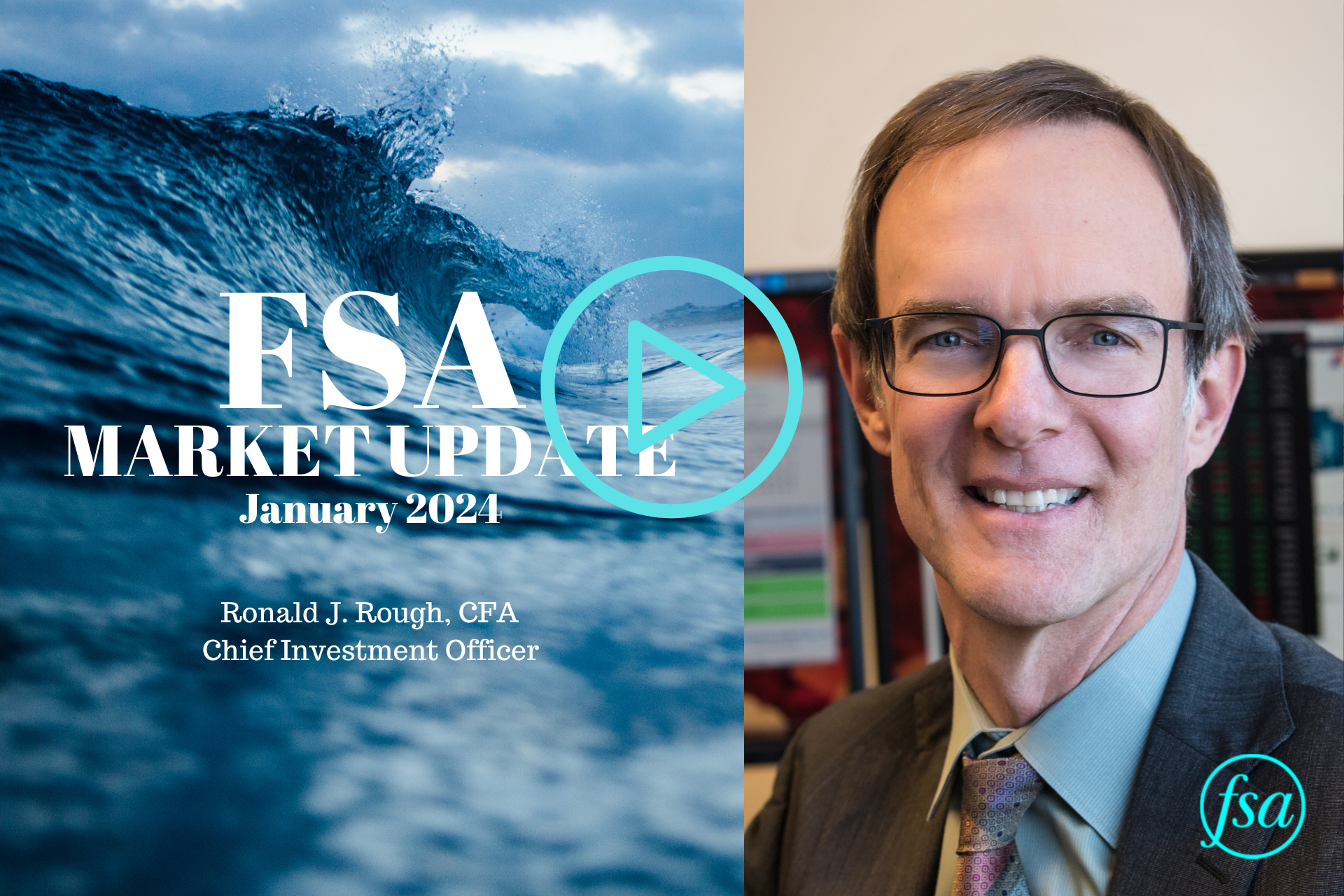Equity markets had a rough start to the new year, reminding us of the adage “as January goes (especially the first five trading days), so goes the rest of the year.” But the weakness proved to be short-lived as the November-December rally resumed course, leading the S&P 500 to finally break above its high from two years ago. The major indices closed the month of January modestly in the green, driven primarily by the performance of large-cap growth stocks, while the average stock struggled.
What Happened in January
- S&P 500 finally broke out above its January 2022 high – Thanks in large part to a handful of mega caps, primarily Big Tech stocks, the S&P 500 broke to a new high that would confirm the resumption of the bull market.
- But the average stock told a different story – While the rally in November and December was broad, with more areas of the stock and bond markets participating, market performance in January reverted to last year’s trend of the “Magnificent 7” or “Elite 8” stocks pulling most of the weight. The S&P 500, which is a market-cap weighted index, meaning the largest companies have a greater impact on performance, was up 1.6% in January. But the Invesco S&P 500®Equal Weight ETF (RSP), which equally-weights the stocks in the S&P 500 and is influenced more by mid-size companies, was down almost 1% in January. That’s quite a difference. And smaller-sized companies fared even worse, down 4% on average.
- Bonds struggled – Though some areas of the bond market held up relatively well, the broader bond market and high yield corporate bonds showed slightly negative returns for January. With a slight upward bias in interest rates during the month, bonds generally moved in the opposite direction.
- Good economic data – what bad news? – Strong GDP growth in the fourth quarter of 2023, continued strength in the labor market, and slowing inflation all pointed to good news for the economy, keeping the threat of recession at bay. On the flip side, this rosy picture could prompt the Federal Reserve to delay the rate cuts that market participants are expecting for this year.
- Federal Reserve made no change to its target Federal funds rate at the end of January – While the markets widely anticipated the Fed to leave rates unchanged, investors were rattled by Chairman Powell’s comments following the Fed’s rate announcement on January 31. Equity markets tumbled after Powell made it clear in his press conference that the committee was not yet ready to cut rates. This forced investors to dial back expectations for rate cuts this year since a widely anticipated March rate cut was now off the table.
Changes in FSA Portfolios
- Portfolios entered 2024 with low cash – As Ron Rough mentioned in our last market update, we invested the remaining money market positions of the various FSA strategies when stocks and bonds began to rebound in November. This meant our active strategies were fully invested in their allocations to stocks and/or bonds at the start of the new year. With the markets generally cooperating in January, no major changes were necessary; only minor tweaking was warranted in the portfolios.
Over the past two years, February has been a weak month. That’s not to say we’re expecting the same this year as markets currently have an optimistic bias. But given that the S&P 500 was up 18% from its low near the end of October through the end of January, it wouldn’t be surprising to see markets trade sideways or even stumble. Large-cap growth stocks, specifically Big Tech, that have been propping up the market could be a source of the stumble as both Alphabet and Microsoft reported disappointing earnings late in January.
With spring comes tax season, and we encourage you to reach out to your advisor for assistance with tax planning related to your portfolios.
Mary Ann Drucker
Assistant Portfolio Manager
Disclosures are available at https://fsainvest.com/disclosures/market-update/.
FSA’s current written Disclosure Brochure and Privacy Notice discussing our current advisory services and fees is also available at https://fsainvest.com/disclosures/ or by calling 301-949-7300.




